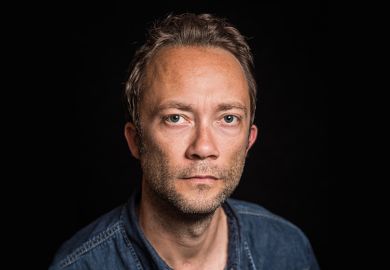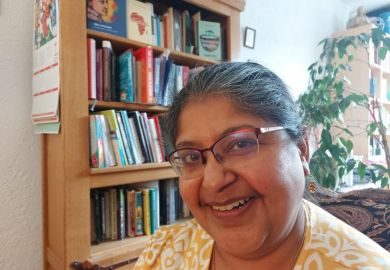What is literature and why do we read it? Ah, the old questions, the old answers, there's nothing like them. That literary theory also muses on these matters makes it a lot closer to the traditions it affects to despise than many of its proponents would like to admit. In very broad terms, the argument is still over the nature and status of the literary, how to read it and what effects it promotes. No doubt some will say this risks ignoring historical difference, but we are all prone to error. Martin McQuillan, in an otherwise clear and balanced introduction to the section on reader response in Julian Wolfreys's Literary Theories , claims that F. R. Leavis was a "New critic". He was, in fact, no such thing.
"New criticism" was the name given to a major critical movement in America that lasted roughly from the 1930s to the 1950s. Leavis wrote most of his major works during this period, but there the similarity ends. He stressed the experiential nature of literature, whereas critics such as Cleanth Brooks and John Crowe Ransom emphasised its formal properties, particularly those of irony, ambiguity and paradox. Such lapses should not be judged too harshly, but if you are going to challenge "the traditional hierarchies of authority", at least get them right.
Old arguments echo in new controversies. Take, as an example, Wolfreys's account of deconstruction in his introduction to the essays on that topic. His main points are that deconstruction "is not a method", that it is an "act of responsible attentiveness" and that it is "faithful to the singularity of that which is being discussed". Wolfreys's defence of deconstruction against those who would see it as a technique of reading uncannily recalls the famous exchange between Leavis and Rene Wellek over the former's refusal to explicate his "philosophy" of criticism. Leavis would wholeheartedly endorse Wolfreys's claim that "the exemplary reading cannot be rendered as a methodology". Now of course there are differences between Leavisian criticism and a particular conception of deconstruction, but our sense of those differences can only be sharpened by appreciating that they are not absolute. Similarly, the existence of certain affinities between different types of criticism suggests that thinking about literature circles around a limited number of profound and enduring questions that are endlessly rephrased without ever being resolved.
This is one of the suggestions of Richard Harland's absorbing and illuminating Literary Theory from Plato to Barthes , which draws frequent parallels between the past and the present. "In medieval thinking as in recent post-structuralist thinking", Harland tells us, "the text was not finalised or bounded by an original conception, but remained open to further expansions and outworks of meaning". So, too, he claims, do "the language orientated insights of French structuralism and post-structuralism tie in with a tradition going all the way back to du Bellay's Defence and Illustration of the French Language (1549)". In addition, Harland reminds us that Burke and Kant clearly anticipate the post-structuralist claim that language constitutes the world, while Diderot's "paradox-loving manner foreshadows postmodernism, with a play of extremes that refuses to be reduced to an overall consistency." In like manner, the 18th-century critic Thomas Warton prefigures the cultural relativism of postmodernism when he argues, apropos of medieval literature, that it should be judged not according to an absolute standard but "in the light of the customs and beliefs then prevailing". There are also scattered hints in Harland's highly readable narrative that literary theory may represent a return to earlier traditions that viewed literature in terms of its social effects rather than its aesthetic qualities.
Literary Theory is ideal for students and lecturers who want to learn, or be reminded, that criticism was not invented, like sexual intercourse, sometime in the 1960s. Harland has included a time chart covering the major periods of criticism and a glossary. He ends his account with structuralism but promises a second volume that will cover "the last 30 years". I look forward to it.
I have already mentioned Wolfreys's Literary Theories , a book the size of a 19th-century novel - and you are lucky if you can get students to read one of those these days. The introduction dutifully repeats theory's founding myth that, until the advent of Barthes, Derrida and Kristeva, literary critics actually believed that literature consisted of "timeless humanist values". Incredible, isn't it? Even now, after 30 years, there are still those who resist it because it is "difficult" and because it is "foreign". Nice rhetorical move, that: theory cannot be critiqued because the only people likely to oppose it are dim little Englanders. Does Wolfreys really need to stoop to conquer? Let us move on to something more positive. And it has to be said that this is a well-organised and wide-ranging collection. All the "isms" are here, and there is a very good section on gay studies and queer theory. The choice of essays representing the different theories is not always inspiring - eg, J. Hillis Miller on cultural studies - but as many of the more famous essays are easily available elsewhere, the editor has probably decided to include those that are not so accessible, regardless, in some cases, of their merit.
The virtue of the book is that, generally, it does seek to apply theory to literature, though this is a bit like asking Clint Eastwood to find a socially useful role for the baddies he has gunned down. Wolfreys rightly insists that there is no literary theory, only literary theories "crossing and recrossing each other's borders". He is very fond of this metaphor. Wolfreys is sniffy about courses on literary theory because they attempt to institutionalise it. So, what does he do? He edits another course book, and, as course books go, this is pretty indistinguishable from all the others jostling for space on the shelves. We do not need more of the same, especially now that Nigel Wood's updated version of David Lodge's classic, Modern Criticism and Theory is available. This book is graced with essays by the major figures who have transformed literary studies during the 20th century. It is arranged historically and thematically, and a short note contextualises and cross-references each contribution. Wood has thoughtfully expanded Lodge's original selection with pieces from, among others, Stephen Greenblatt, Patrocinio P. Schweickart and Gayatri Chakravorty Spivak. These judicious additions enhance the established value of an already well-known and much-used resource.
A book that also deserves praise is Modern Genre Theory , edited by David Duff. This is a timely reminder that works have distinct configurations that should be respected; to make them reflect a theoretical preference may mean ignoring the most valuable thing about them. Duff, in an elegantly written introduction, points out that Jacques Derrida's deconstruction of the "law of genre" might "plausibly be viewed as a re-enactment of the Romantic revolt against the neo-classical conception of genre", again drawing attention to how the apparent revolutions of theory are in fact variations of earlier controversies. It is possible that what the Russian formalists have to say about the evolution of literary genres may prove relevant, in some measure, to the ruptures and repetitions of criticism. It, too, is composed of various genres that, like their literary counterparts, are relatively autonomous, are grouped as hierarchies and are in a condition of "permanent revolution" as they both reproduce and resist the conventions that define them. This is one of the many intriguing observations in a book rich with insights. Duff has done a splendid job in assembling a dazzling selection of essays that cover the many different aspects of genre.
The same might be said of Niall Lucy's Postmodern Literary Theory , a positive cornucopia of a work that boasts splendours galore. The book is conveniently divided into themes, and there is not a bad essay in the collection. The contributors all ask the overwhelming question - "What, then is literature?" - and, as the editor notes, they also ponder "whether the unfinished project of Romanticism carries on today as postmodern literary theory". Again we are confronted with the issue of whether literary theory is a break with the past or a continuation of it by other means. Lucy's scholarly anthology is probably more suited to postgraduates than undergraduates, but the latter have reason to be grateful to Tim Woods's little gem, Beginning Postmodernism . Here is a clear introduction to postmodernism in all its manifestations, from philosophy to pop music. Like all the books in this series, this one is student-friendly without being patronising. I wish I had had stuff like this when I was an undergraduate.
Gary Day is principal lecturer in English, De Montfort University.
Modern Genre Theory: First Edition
Editor - David Duff
ISBN - 0 582 36806 5 and 36805 7
Publisher - Longman
Price - £55.00 and £17.99
Pages - 287
Register to continue
Why register?
- Registration is free and only takes a moment
- Once registered, you can read 3 articles a month
- Sign up for our newsletter
Subscribe
Or subscribe for unlimited access to:
- Unlimited access to news, views, insights & reviews
- Digital editions
- Digital access to THE’s university and college rankings analysis
Already registered or a current subscriber? Login



